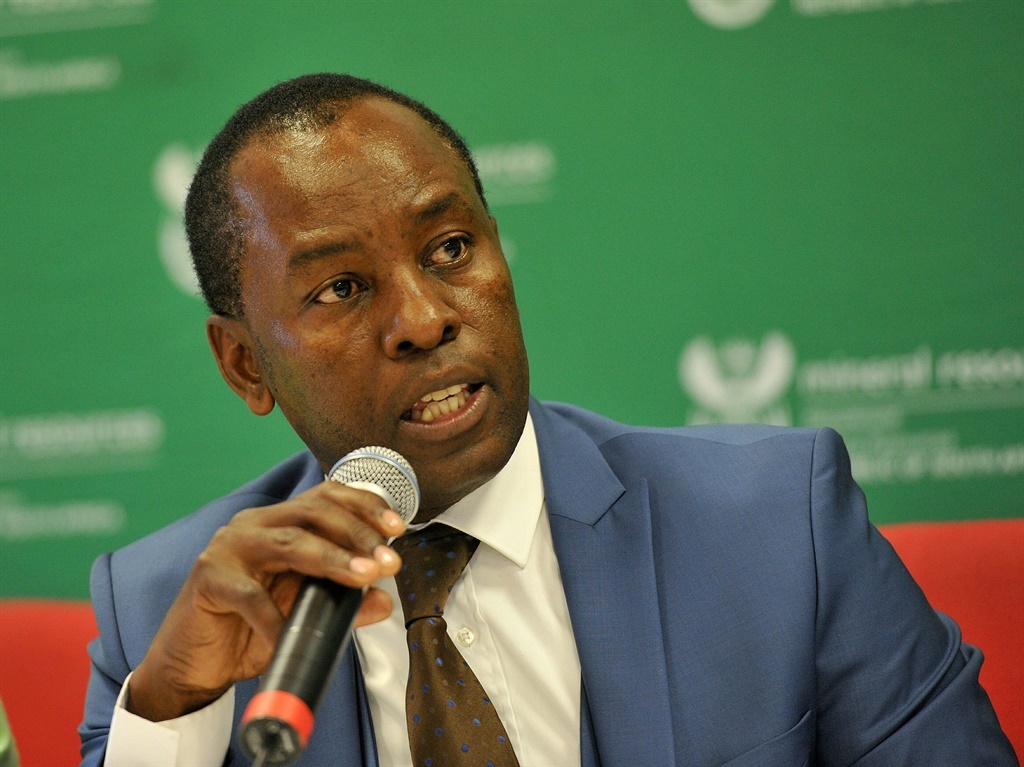


Mosebenzi Zwane. (Gallo Images)
- Former Free State human settlements MEC Mosebenzi Zwane has answered questions about why his department used a database to award housing contracts after abandoning an open tender process.
- The Zondo inquiry is currently focusing on the billion rand Free State housing project.
- The province was meant to build low-cost housing in 2010 and 2011, but many of those houses were never built.
Former Free State MEC for human settlements Mosebenzi Zwane has laid the blame on department officials for suggesting the creation of a database in order to provide work for contractors, after an open tender process was abandoned.
The database included disqualified bidders, the state capture inquiry heard on Friday, as it delves into the R1 billion Free State housing project.
The project has been described as “completely irregular” and “fraudulent”.
Zwane told chairperson Deputy Chief Justice Raymond Zondo, that he was assured by the officials that the use of a database was lawful.
He said after the tender was abandoned, he requested a way forward from his officials who advised him about a database.
The database comprised of new entrants without a formal tender process having been embarked upon, the commission heard.
Zwane alleged that former department boss Mpho Mokoena was one of the officials who advised him to use a database as opposed to an open tender process to award contracts.
He claimed that Mokoena said this was a process that had been used by previous MECs before him, adding it was a process under the housing Act.
READ: Zwane appointed unknown contractors to build homes, former dept head tells Zondo
“The officials which were there chair, had been long in that department, it is them that would actually take me through the processes as they did when the tender failed. I could not dictate to them in terms of the nitty-gritties because from where I was seated that was an administrative issue,” he said.
“As a new comer I agreed with the process for as long as it would help us move forward,” he said.
Zwane said he raised the database issue with the provincial exco, chaired by former Free State Premier Ace Magashule.
He said exco agreed to using the process, but came up with some requirements that it should include young people with “less experience or no experience at all”. It should also include the disabled and women.
“It should also consider the geographical spread of the province and those were the issues that the database had to consider,” Zwane said.
Zwane also told the commission that he was unaware of the inclusion of disqualified bidders on the database.
“I did not control the process chair, the process was required to be approved by me but details in terms of how the database was compiled I gave the feedback from exco and allowed the officials to do that and bring the product to me,” he said.
According to evidence leader advocate Paul Pretorius – 361 bids were received, however, 105 were disqualified for basic bid compliance reasons, while 147 were disqualified because they did not meet the minimum functionality threshold.
He said 109 bids out of the 361 were recommended to bid adjudication committee.
Zwane said had it been brought to his attention that the execution of the public procurement was unlawful, he would have “stopped it”.
In 2010 and 2011, Free State people were promised houses, however, many of those houses were never built, leaving some people’s hopes dashed.
ANALYSIS | The billion rand housing scheme that paved the way for state capture to come
The inquiry has heard that the department spent over R500 million before any work could be done.
The evidence revealed that the housing department made payments to contractors and suppliers without any written agreement or any proof that houses had been built.
It also heard that Zwane selected who should be part of the project, resulting in the department losing over R400 million.
The money was spent after the national department threatened to transfer some of the Free State housing budget to “better performing provinces”.
The Free State had underspent the money allocated to it. However, a scheme was allegedly hatched by Zwane for the money to be spent which led to more than 100 contractors getting an advance payment before anything could be done.
There was no procurement process in respect of the contractors and the parties who supplied materials.

